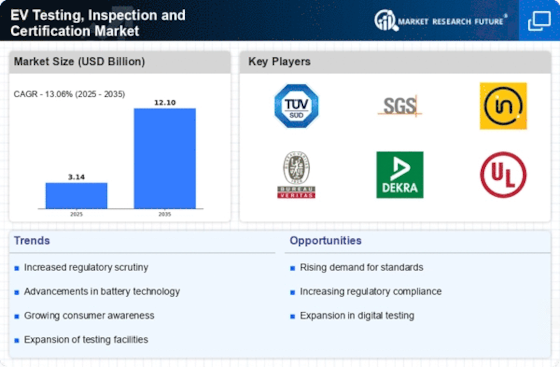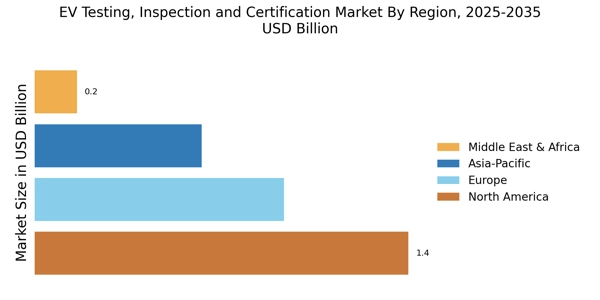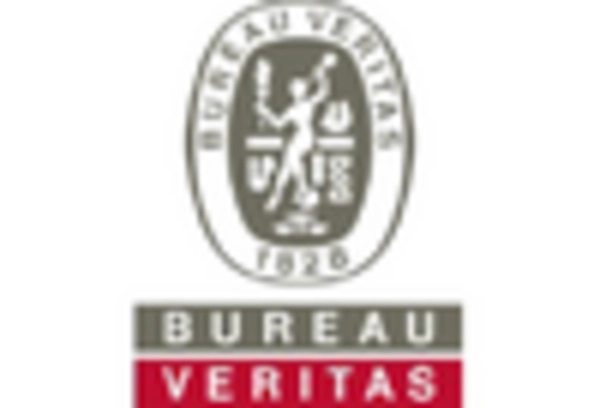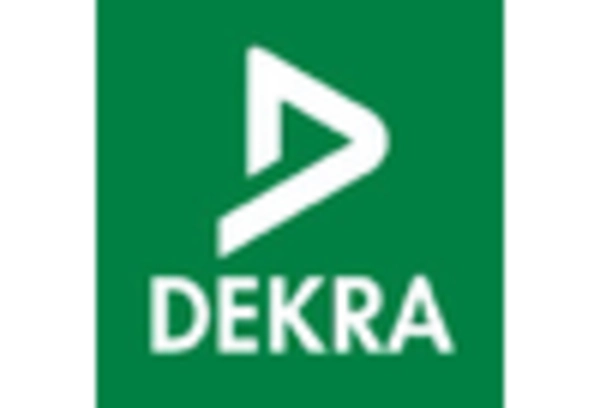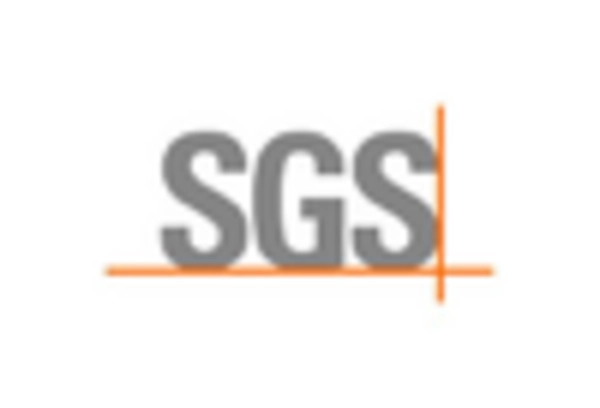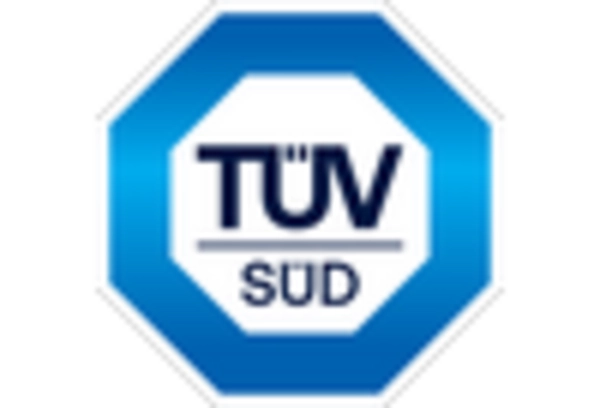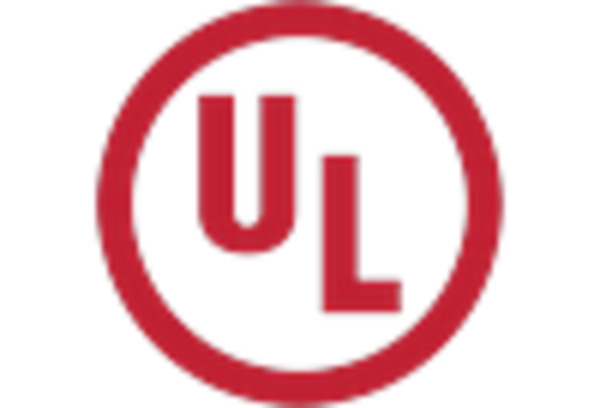Stringent Regulatory Frameworks
The implementation of stringent regulatory frameworks is a significant driver for the EV Testing, Inspection and Certification Market. Governments worldwide are enacting policies that mandate compliance with safety, environmental, and performance standards for EVs. For instance, regulations concerning battery safety and emissions are becoming increasingly rigorous, compelling manufacturers to invest in thorough testing and certification processes. In 2025, it is projected that compliance costs for EV manufacturers will rise, further emphasizing the necessity for reliable testing services. This regulatory environment not only ensures consumer safety but also fosters innovation within the industry, thereby driving demand for specialized testing and certification services.
Expansion of Charging Infrastructure
The expansion of charging infrastructure is a vital driver for the EV Testing, Inspection and Certification Market. As the number of electric vehicles on the road increases, the demand for reliable and accessible charging stations grows correspondingly. This necessitates the testing and certification of charging equipment to ensure safety and compatibility with various EV models. In 2025, it is projected that the number of public charging stations will double, creating a pressing need for comprehensive testing services. The development of standardized testing protocols for charging infrastructure will be essential to support this growth. Consequently, the EV Testing, Inspection and Certification Market is likely to experience heightened demand as it plays a critical role in facilitating the expansion of EV charging networks.
Increasing Demand for Electric Vehicles
The rising demand for electric vehicles (EVs) is a primary driver for the EV Testing, Inspection and Certification Market. As consumers increasingly opt for EVs due to environmental concerns and government incentives, the need for rigorous testing and certification becomes paramount. In 2025, it is estimated that EV sales will account for over 30% of total vehicle sales, necessitating comprehensive testing protocols to ensure safety and performance. This surge in demand compels manufacturers to seek reliable testing and certification services to meet regulatory standards and consumer expectations. Consequently, the EV Testing, Inspection and Certification Market is poised for substantial growth as it adapts to the evolving landscape of the automotive sector.
Technological Innovations in Testing Methods
Technological innovations in testing methods are reshaping the EV Testing, Inspection and Certification Market. Advancements in testing technologies, such as automated testing systems and artificial intelligence, enhance the efficiency and accuracy of testing processes. These innovations allow for more comprehensive assessments of EV performance, safety, and reliability. As manufacturers strive to meet evolving consumer expectations and regulatory requirements, the adoption of these advanced testing methods is likely to increase. In 2025, it is anticipated that the market for automated testing solutions will grow significantly, reflecting the industry's shift towards more sophisticated testing methodologies. This trend underscores the importance of continuous improvement in testing practices within the EV Testing, Inspection and Certification Market.
Growing Focus on Sustainability and Environmental Impact
The growing focus on sustainability and environmental impact is a crucial driver for the EV Testing, Inspection and Certification Market. As awareness of climate change and environmental degradation intensifies, consumers and manufacturers alike are prioritizing sustainable practices. This shift is prompting a demand for testing and certification services that assess the environmental impact of EVs, including lifecycle assessments and recyclability of materials. In 2025, it is expected that a significant portion of the market will be dedicated to sustainability-focused testing services, reflecting the industry's commitment to reducing its carbon footprint. This trend not only aligns with consumer values but also positions the EV Testing, Inspection and Certification Market as a key player in the transition towards a more sustainable automotive sector.


